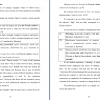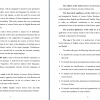Тема: Лексико-грамматические особенности перевода научно-фантастических произведений с английского на русский и турецкий языки / Lexical and grammatical features of translating science fiction works from English into Russian and Turkish
Закажите новую по вашим требованиям
Представленный материал является образцом учебного исследования, примером структуры и содержания учебного исследования по заявленной теме. Размещён исключительно в информационных и ознакомительных целях.
Workspay.ru оказывает информационные услуги по сбору, обработке и структурированию материалов в соответствии с требованиями заказчика.
Размещение материала не означает публикацию произведения впервые и не предполагает передачу исключительных авторских прав третьим лицам.
Материал не предназначен для дословной сдачи в образовательные организации и требует самостоятельной переработки с соблюдением законодательства Российской Федерации об авторском праве и принципов академической добросовестности.
Авторские права на исходные материалы принадлежат их законным правообладателям. В случае возникновения вопросов, связанных с размещённым материалом, просим направить обращение через форму обратной связи.
📋 Содержание
Chapter 1. Theoretical Framework: Issues in Translation of Science Fiction 9
1.1. The Concept of Science Fiction 9
1.1.1. The Definition of Science Fiction 9
1.1.2. The Classification of Science Fiction 11
1.2. Lexical and Grammatical Features of Science Fiction 14
1.2.1. Lexical Features of Science Fiction Literature 15
1.2.2. Grammatical Features of Science Fiction Literature 18
1.3. The Concept of Translation Techniques in Translation Studies 21
1.3.1. The Definition of Translation Techniques and Different Approaches 21
1.3.2. The Classification of Translation Techniques 25
1.4. The Concept of Equivalence in Translation Studies 35
1.4.1. The Definition of Equivalence in Translation Studies 35
1.4.2. Different Approaches to The Concept of Equivalence 36
Conclusions for Chapter 1 42
Chapter 2. Analysis of the Translation of Science Fiction from English into Russian and Turkish 43
2.1. Lexical Transformations in Translation of Science Fiction 43
2.1.1. Formal Lexical Transformations 43
2.1.2. Contextual Lexical Transformations 51
2.2. Grammatical Transformations in Translation of Science Fiction 67
2.2.1. Grammar Substitution 67
2.2.2. Sentence Fragmentation 69
2.2.3. SentenceIntegration 72
2.3. Lexical-Grammatical Transformations in Translation of Science Fiction 74
2.3.1. Antonymic Translation 74
2.3.2. Explicitation 76
2.3.3. Compensation 79
2.3.4. Addition 81
2.3.5. Omission 84
2.4. Translation Mistakes 86
Conclusions for Chapter 2 89
Conclusion 91
References 93
Dictionaries 97
Source of Examples 98
📖 Введение
The translation of science fiction presents a unique set of challenges. Translators have to deal with the creative ideas and fantastical situations that are inherent in the genre in addition to the complexities of language and culture. Lexical choices play a pivotal role in capturing the essence of science fiction narratives, from the invention of new terms to the adaptation of existing ones to suit the linguistic and cultural context of the target language. Furthermore, grammatical structures play a crucial role in conveying the structure, meaning, style, and nuances of the source text into the target language.
The relevance of the study is due to the fact that literary translation, in particular of science fiction literature, is analysed in the context of translation theories and comparative linguistics. The analysis employs three languages, which allows for identifying cross-linguistic patterns between languages of different groups.
The novelty of the study is that the features of science fiction literature are analysed with a comparative approach from English into both Russian and Turkish through translation transformations. As far as we know, there is no comprehensive research on the topic at the moment.
The object of the studyis English science fiction texts and their translations into Russian and Turkish and their lexical and grammatical features.
The subject of the studytranslation transformations employed in order to convey linguistic features of science fiction texts.
The theoretical significance of the study lies in identifying the lexical and grammatical features of science fiction literature, as well as translation techniques from English into Russian and Turkish. This provides an opportunity to make an additional contribution to the development of lexical and grammatical issues in the translation of this literary genre.
The practical significance of the study lies in the possibility of further application of the research results in the work of the translator and in training materials on the practice of translation.
The aim of this study is to analyseways of rendering grammatical and lexical features of English science fiction literature from English into Russian and Turkish.
To achieve this goal, the following objectives need to be achieved:
• To describe the concept of science fiction and identify its genres relevant to this study;
• To identify the lexical and grammatical features science fiction literature;
• To consider the classifications of translation transformations and identify those that can be used to analyse the linguistic material;
• To identify and describe lexical transformations used in the translation of science fiction;
• To identify and describe grammatical transformations used in the translation of science fiction;
• To identify and describe lexical and grammatical (complex) transformations used in the translation of science fiction;
The research methods applied in the study are comparative analysis, translation analysis, semantic analysis, contextual analysis, syntactic analysis.
The research material comprised Ray Bradbury's novel “Fahrenheit 451” and its translations into Russian by Vitaly Timofeyevich Babenko, and into Turkish by Dost Korpe. Additionally, Ray Bradbury's novel “The Martian Chronicles”, its translation into Russian by Lev Lvovich Zhdanov, and into Turkish by Baris Emre Alkim were included in the study.
This study consists of an introduction, two chapters, two conclusions for chapter 1 and 2, a conclusion, a list of references, a list of dictionaries, and a list of a source of examples.
The first chapter describes the definition and genres of science fiction. Then the chapter shifts to analysing lexical and grammatical features of science fiction literature, as well as challenges that the translator may encounter due to various norms and grammatical structures of the source and the target language. Such linguistic asymmetry usually necessitates the use of various translation techniques. Therefore, chapter also discusses the approaches and classifications of translation techniques by scholars such as John CunnisonCarford, Jean-Paul Vinay and Jean Darbelnet, Eugene Nida, Vilen Naumovich Komissarov, Leonid Stepanovich Barkhudarov, Viktor Ivanovich Shadrin, and Alexander Davidovich Schweitzer. Finally, the chapter examines the concept of equivalence in translation studies, emphasizing its significance in transferring meaning between languages and cultures. The chapter discusses theories of equivalence proposed by such scholars as Anthony Pym, John Cunnison Catford, Eugene Nida, Peter Newmark, Katharina Reiss, Hans Vermeer, as well as Russian scholars such as Vilen Naumovich Komissarov, Andrey Venediktovich Fyodorov, Nikolai Konstantinovich Garbovsky, Pavel Maksimovich Toper, Roman Jacobson.
The second chapter analyses examples of translations from the source language (English) into the target languages (Russian and Turkish). To this end, we consider Komissarov's translation transformations, which is further supplemented by Barkhudarov’s and Shadrin's transformations and Vinay and Darbelnet's procedures. The examples are analysed under three headings: lexical, grammatical and lexical-grammatical transformations.
Through a comprehensive analysis of lexical and grammatical features in translations of science fiction works, this study seeks to shed light on the translation techniques employed by translators when faced with the unique challenges of translating science fiction literature. By analysing a selection of science fiction works translated from English into Russian and Turkish, this study aims to identify common lexical and grammatical features in these translations, as well as the translation techniques employed by translators to navigate linguistic and cultural differences.
✅ Заключение
The second chapter of the study focuses on an analysis of the transformations applied in the translation of science fiction texts from English into Russian and Turkish, unveiling disparities between the languages. In the translation of science fiction literature, translators endeavour to effectively convey the essence of the source text to the target text while maintaining fidelity to the norms of the target language and preserving the stylistic nuances of the source material. To navigate translation challenges and achieve equivalence, translators employ various translation techniques.
Frequently utilized transformations are calque, explicitation, and generalization address lexical obstacles intrinsic to science fiction, including occasionalisms, compound words, and attributive expressions. Metaphorical translation facilitates the transfer of metaphors or the provision of idiomatic expressions in the target text. Adaptation serves to convey culture-specific elements, while concretization, addition, and explicitation enhance clarity in conveying the message of the source text to the target language. Compensation, explicitation, and generalization are employed when translating terms or phrases lacking direct equivalents in the target language. Omission simplifies the translation of terms or phrases devoid of additional meaning. Grammatical substitution, sentence integration, and sentence fragmentation ensure the conveyance of the meaning of the source text while adhering to the norms of the target language.
Overall, this study adds to our understanding of the complex process of translating science fiction literature, shedding light on the various translation transformations used by translators to overcome linguistic and cultural barriers and achieve effective communication across languages.





